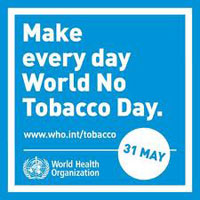Reply To:
Name - Reply Comment
Last Updated : 2024-04-24 10:25:00
_city-DM-9.jpg)
 Make compulsory that information provided by the tobacco industry be transparent and accurate.
Make compulsory that information provided by the tobacco industry be transparent and accurate.
Add comment
Comments will be edited (grammar, spelling and slang) and authorized at the discretion of Daily Mirror online. The website also has the right not to publish selected comments.
Reply To:
Name - Reply Comment
US authorities are currently reviewing the manifest of every cargo aboard MV
On March 26, a couple arriving from Thailand was arrested with 88 live animal
According to villagers from Naula-Moragolla out of 105 families 80 can afford
Is the situation in Sri Lanka so grim that locals harbour hope that they coul